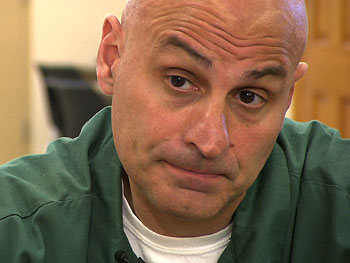A New York judge has postponed a civil trial that would have delved into how a major player in the global trade in human tissue obtains skin, bones and other body parts that are recycled into medical devices.
The trial, scheduled for Oct. 22 in a Staten Island courtroom, has been put off indefinitely so lawyers can have time to appeal various pre-trial rulings and so they can meet with a mediator in the hope of working out settlements of the claims against Florida-based RTI Biologics, Inc.
Dozens of families have sued RTI and its subsidiaries over its three-year relationship with a smaller company, Biomedical Tissue Services, Inc., which fed the larger company illegally harvested human tissues.
BTS and its owner, Michael Mastromarino, forged next of kin’s signatures and other information on donor consent forms.
The plaintiffs are sons, daughters, spouses and other kin of the dead who came under the knife of BTS. Richmond County (N.Y.) Supreme Court Judge Joseph J. Maltese has written that the smaller company’s method of operation “involved cutting open the corpses and harvesting tissue, bone and organs and replacing those body parts with materials purchased at local hardware stores, such as PVC pipes and rubber gloves.”
Mastromarino has been convicted of multiple criminal charges in New York and Pennsylvania and is serving an 18- to 54-year sentence. His story was featured in the International Consortium of Investigative Journalists’ recent series on the human tissue trafficking.
At issue in the civil litigation is whether RTI turned a blind eye to his questionable credentials and whether it did enough to check whether donor consents were legitimate.
Documents unearthed in the litigation show RTI continued working with Mastromarino after an attorney for the company warned that he had had his dental license suspended by New York state authorities and had been previously arrested on drug charges and convicted of unlawful use of a police uniform or emblem.
In court papers, RTI denies any wrongdoing.
The company says it didn’t know Mastromarino was forging information on donor forms. It says the plaintiff’s claims against RTI divert attention from the “true wrongdoers”– Matromarino’s company and the funeral homes that fed him fresh bodies.
RTI’s lawyers argue that the law is clear that tissue processing firms are “allowed to accept tissue—without any civil liability whatsoever—as long as they do so without actual knowledge of a contrary intent of the donor.” The law doesn’t require that tissue processors investigate whether the consents are authentic, company lawyers asserted in court filings.
RTI said in securities filings covering the second quarter of this year that it had resolved 29 of the lawsuits relating to the Mastromarino affair, setting aside roughly $2.4 million to cover the costs of the settlements.
![]() Subscribe to The ICIJ Global Muckraker by email or get the RSS feed
Subscribe to The ICIJ Global Muckraker by email or get the RSS feed
